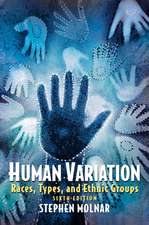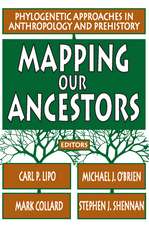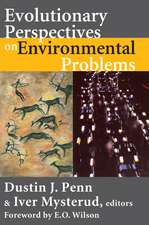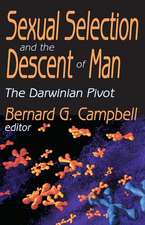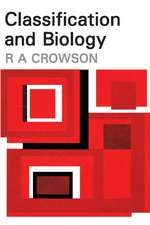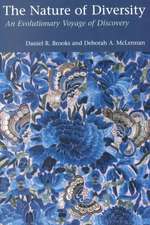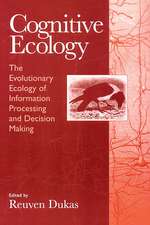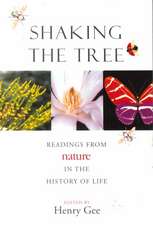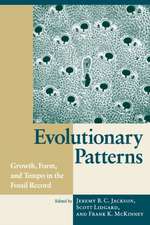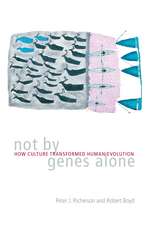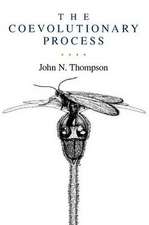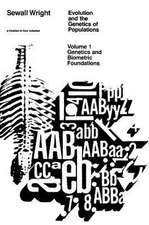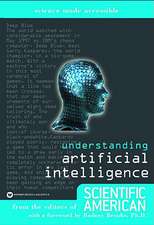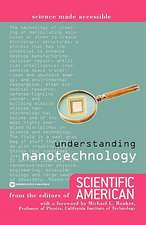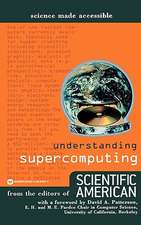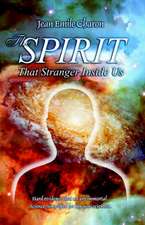Evolution: A Scientific American Reader: Scientific American Readers
Editat de Scientific Americanen Limba Engleză Paperback – 15 sep 2006
From the Scopes “Monkey Trial” of 1925 to the court ruling against the Dover Area School Board’s proposed intelligent design curriculum in 2005, few scientific topics have engendered as much controversy—or grabbed as many headlines—as evolution. And since the debate shows no signs of abating, there is perhaps no better time to step back and ask: What is evolution? Defined as the gradual process by which something changes into a different and usually more complex and efficient form, evolution explains the formation of the universe, the nature of viruses, and the emergence of humans. A first-rate summary of the actual science of evolution, this Scientific American reader is a timely collection that gives readers an opportunity to consider evolution’s impact in various settings.
Divided into four sections that consider the evolution of the universe, cells, dinosaurs, and humans, Evolution brings together more than thirty articles written by some of the world’s most respected evolutionary scientists. As tour guides through the genesis of the universe and complex cells, P. James E. Peebles examines the evidence in support of an expanding cosmos, while Christian de Duve discusses the birth of eukaryotes. In an article that anticipated his book Full House, Stephen Jay Gould argues that chance and contingency are as important as natural selection for evolutionary change. And Ian Tatersall makes two fascinating contributions, submitting his view that the schematic of human evolution looks less like a ladder and more like a bush.
With the latest on what’s being researched at every level of evolutionary studies, from prospects of life on other planets to the inner working of cells, Evolution offers general readers an opportunity to update their knowledge on this hot topic while giving students an introduction to the problems and methodologies of an entire field of inquiry.
Divided into four sections that consider the evolution of the universe, cells, dinosaurs, and humans, Evolution brings together more than thirty articles written by some of the world’s most respected evolutionary scientists. As tour guides through the genesis of the universe and complex cells, P. James E. Peebles examines the evidence in support of an expanding cosmos, while Christian de Duve discusses the birth of eukaryotes. In an article that anticipated his book Full House, Stephen Jay Gould argues that chance and contingency are as important as natural selection for evolutionary change. And Ian Tatersall makes two fascinating contributions, submitting his view that the schematic of human evolution looks less like a ladder and more like a bush.
With the latest on what’s being researched at every level of evolutionary studies, from prospects of life on other planets to the inner working of cells, Evolution offers general readers an opportunity to update their knowledge on this hot topic while giving students an introduction to the problems and methodologies of an entire field of inquiry.
Preț: 204.88 lei
Nou
Puncte Express: 307
Preț estimativ în valută:
39.20€ • 40.93$ • 32.45£
39.20€ • 40.93$ • 32.45£
Carte tipărită la comandă
Livrare economică 05-19 aprilie
Preluare comenzi: 021 569.72.76
Specificații
ISBN-13: 9780226742694
ISBN-10: 0226742695
Pagini: 312
Ilustrații: 72 halftones, 11 line drawings
Dimensiuni: 152 x 229 x 23 mm
Greutate: 0.48 kg
Editura: University of Chicago Press
Colecția University of Chicago Press
Seria Scientific American Readers
ISBN-10: 0226742695
Pagini: 312
Ilustrații: 72 halftones, 11 line drawings
Dimensiuni: 152 x 229 x 23 mm
Greutate: 0.48 kg
Editura: University of Chicago Press
Colecția University of Chicago Press
Seria Scientific American Readers
Notă biografică
Scientific American, the premier general-interest science magazine, reports the most important developments in modern science, medicine, and technology to more than three million readers worldwide. The oldest continuously published magazine in the United States, it has been at the forefront of science for more than 150 years.
Cuprins
THE EVOLUTION OF THE UNIVERSE
The Evolution of the Universe
The First Stars in the Universe
Exploring Our Universe and Others
Searching for Life in Our Solar System
The Fate of Life in the Universe
Life's Rocky Start
Misconceptions about the Big Bang
The Evolution of the Earth
CELLULAR EVOLUTION
Uprooting the Tree of Life
The Birth of Complex Cells
Viral Quasispecies
How Cells Respond to Stress
Cell Communication: The Inside Story
Life, Death and the Immune System
Cybernetic Cells
DINOSAURS AND OTHER MONSTERS
Rulers of the Jurassic Seas
The Mammals That Conquered the Seas
Breathing Life into Tyrannosaurus rex
Madagascar's Mesozoic Secrets
Which Came First, the Feather or the Bird?
The Terror Birds of South America
The Evolution of Life on Earth
HUMAN EVOLUTION
An Ancestor to Call Our Own
Early Hominid Fossils from Africa
Planet of the Apes
Once We Were Not Alone
Out of Africa Again... and Again?
Who Were the Neandertals
Food for Thought
Skin Deep
The Evolution of Human Birth
Once Were Cannibals
If Humans Were Built to Last
Illustration Credits
The Evolution of the Universe
The First Stars in the Universe
Exploring Our Universe and Others
Searching for Life in Our Solar System
The Fate of Life in the Universe
Life's Rocky Start
Misconceptions about the Big Bang
The Evolution of the Earth
CELLULAR EVOLUTION
Uprooting the Tree of Life
The Birth of Complex Cells
Viral Quasispecies
How Cells Respond to Stress
Cell Communication: The Inside Story
Life, Death and the Immune System
Cybernetic Cells
DINOSAURS AND OTHER MONSTERS
Rulers of the Jurassic Seas
The Mammals That Conquered the Seas
Breathing Life into Tyrannosaurus rex
Madagascar's Mesozoic Secrets
Which Came First, the Feather or the Bird?
The Terror Birds of South America
The Evolution of Life on Earth
HUMAN EVOLUTION
An Ancestor to Call Our Own
Early Hominid Fossils from Africa
Planet of the Apes
Once We Were Not Alone
Out of Africa Again... and Again?
Who Were the Neandertals
Food for Thought
Skin Deep
The Evolution of Human Birth
Once Were Cannibals
If Humans Were Built to Last
Illustration Credits


